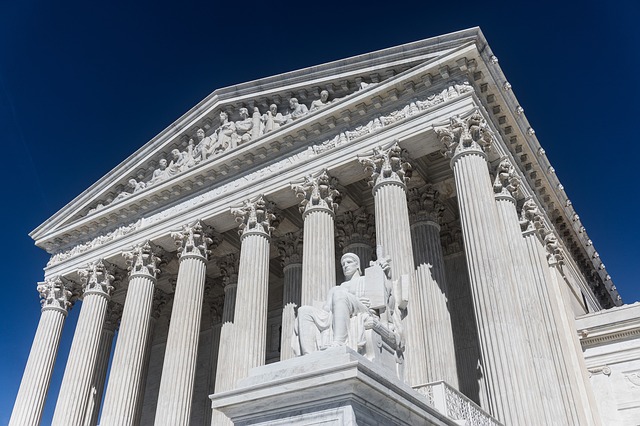US Supreme Court ruling could see international financial institutions sued in US for environmentally damaging investments
- March 9, 2019
- Posted by: Elaine Coles
- Category: Environmental, Investment and Finance, Water Issues, North America

A ruling by the United States Supreme Court on 27th February 2018 says that international financial institutions can be subject to lawsuits in cases where their investments in foreign development projects are alleged to have caused harm to local communities.
The Court issued a majority 7-1 decision in the case of Jam v. International Finance Corporation (IFC), part of the World Bank Group.
The respondent in the case, the International Finance Corporation, is an international organization headquartered in the United States. The IFC finances private-sector development projects in poor and developing countries around the world.
About 10 years ago, the IFC financed the construction of a power plant in Gujarat, India. The petitioners – local farmers and fishermen and a small village – had alleged that the power plant has polluted the air, land, and water in the surrounding area. The petitioners initially sued the IFC for damages and injunctive relief in the Federal District Court, but the IFC claimed absolute immunity from suit.
However, the Supreme Court has agreed with the petitioners’ argument that under the International Organizations Immunities Act of 1945 the IFC was entitled only to the limited or “restrictive” immunity that foreign governments currently enjoy.
The case required the Supreme Court to determine whether the IOIA grants international organizations the virtually absolute immunity foreign governments enjoyed when the IOIA was enacted, or the more limited immunity they enjoy today.
In the wake of World War II, the United States and many of its allies joined together to establish a number of new international organizations. The organizations, which included the United Nations, the International Monetary Fund, and the World Bank, were designed to allow member countries to collectively pursue goals such as stabilizing the international economy, rebuilding war-torn nations, and maintaining international peace and security.
Anticipating that those and other international organizations would locate their headquarters in the United States, Congress passed the International Organizations Immunities Act of 1945 granting international organizations a set of privileges and immunities, such as immunity from search and exemption from property taxes.
Delivering the opinion of the Court, Chief Justice Roberts said:
“The International Organizations Immunities Act of 1945 grants international organizations such as the World Bank and the World Health Organization the “same immunity from suit . . . as is enjoyed by foreign governments.”
“At the time the IOIA was enacted, foreign governments enjoyed virtually absolute immunity from suit. Today that immunity is more limited. Most significantly, foreign governments are not immune from actions based upon certain kinds of commercial activity in which they engage. “
The IOIA provision at issue in the case which came before the Supreme Court provides that international organizations “shall enjoy the same immunity from suit and every form of judicial process as is enjoyed by foreign governments.”
However, the IOIA also authorizes the President of the United States to withhold, withdraw, condition, or limit the privileges and immunities it grants in light of the functions performed by any given international organization.
The IFC had argued that interpreting the IOIA’s immunity provision to grant anything less than absolute immunity would lead to a number of undesirable results – including the view that affording international organizations only restrictive immunity would defeat the purpose of granting them immunity in the first place.
The Supreme Court decision document summarises the IFC’s argument as follows:
“Allowing international organizations to be sued in one member country’s courts would in effect allow that member to second-guess the collective decisions of the others. It would also expose international organizations to money damages, which would in turn make it more difficult and expensive for them to fulfill their missions.”
“The IFC argues that this problem is especially acute for international development banks. Because those banks use the tools of commerce to achieve their objectives, they may be subject to suit under the FSIA’s commercial activity exception for most or all of their core activities, unlike foreign sovereigns. According to the IFC, allowing such suits would bring a flood of foreign-plaintiff litigation into U. S. courts.”
Ruling in favour of the plaintiffs, the Supreme Court decision says the IFC’s concerns are inflated and that the privileges and immunities accorded by the IOIA are only default rules. “Nor is there good reason to think that restrictive immunity would expose international development banks to excessive liability”, the ruling states.
For the first time, the ruling means that when international investments go wrong and damage the environment, the World Bank Group (the largest single investor in water projects globally) and other international organizations can now be sued in the US.
